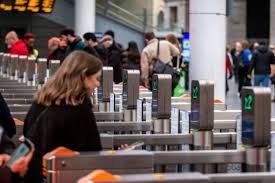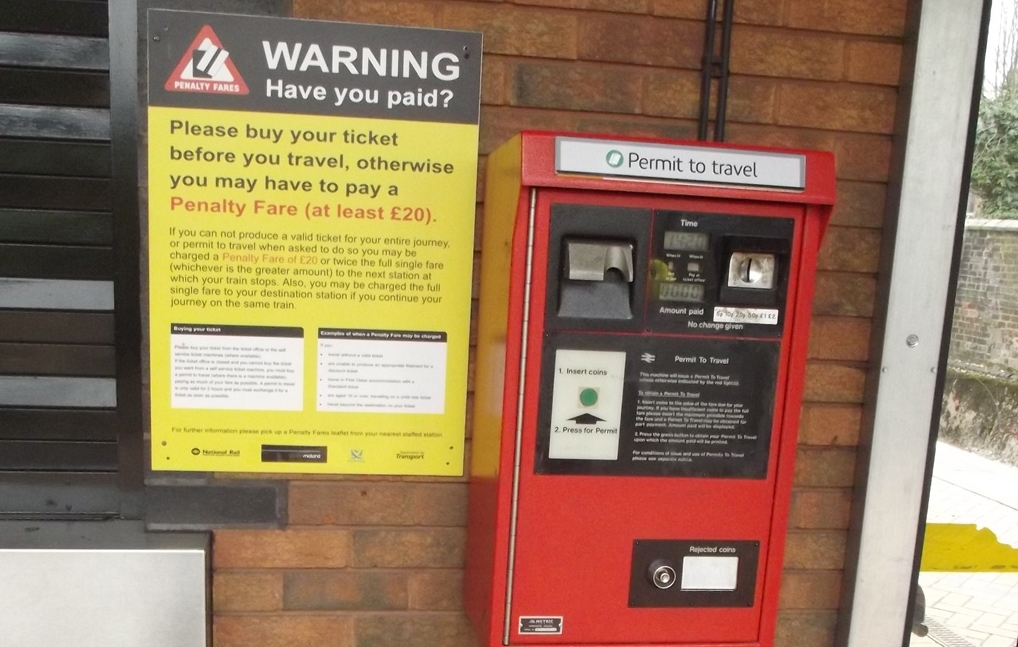Receiving a penalty notice for alleged fare evasion can trigger significant anxiety and confusion. Many passengers, upon spotting an official-looking document demanding payment, worry about the possibility of escalating fines or even a criminal record. Yet, it is essential to understand that in many UK fare evasion cases, there are pathways to negotiate a settlement before matters ever reach a courtroom.
This article explores how negotiation works in resolving penalty notices for fare evasion. It aims to clarify each step in the process, highlight why settlements can be preferable for both passenger and transport operator, and offer practical guidance on achieving a fair outcome. For anyone who has received a penalty notice and fears the worst, higher charges or legal proceedings, knowing how and when to engage in settlement negotiations can make all the difference.
Understanding Fare Evasion Settlement Options
Fare evasion cases often begin with a penalty notice, which the passenger must either pay, appeal, or risk facing further legal action. A penalty notice serves as an immediate financial deterrent, reflecting the operator's stance that travelling without a valid ticket (whether deliberately or accidentally) carries consequences. However, the story does not end there.
An operator may recognise that many passengers did not intend to commit fare evasion, or that the case involves extenuating circumstances. In some situations, operators will entertain settlement discussions, especially if a formal court process would be time-consuming and costly. By coming to an agreement out of court, both sides can avoid the expense and stress of prosecution.
Key Steps After Receiving a Penalty Notice
React Promptly and Stay Organised
Time is not on your side when dealing with a penalty notice. Depending on the operator, you may have as few as 21 days to respond by paying or lodging a formal appeal. Missing this window often leads to surcharges or a heightened risk of legal proceedings. Therefore, begin by noting the payment or appeal deadline and gather any evidence you might need, such as tickets, receipt copies, or screenshots from your Oyster or contactless journey history.
Decide Whether to Appeal or Negotiate
If you believe the penalty notice is genuinely wrong, perhaps due to a machine malfunction or unclear signage, then you might consider an appeal first. Submitting a well-documented, polite appeal to the operator can result in a cancelled or reduced penalty. However, if there is a risk the operator will reject your appeal, or if you have received multiple notices before, negotiations may provide a more certain route to ending the dispute. Some passengers choose to signal an interest in negotiation alongside an initial appeal, indicating their willingness to settle if their arguments fail.
Assess the Severity of the Situation
Fare evasion cases vary. One-off mistakes leading to a single penalty fare notice are frequently easier to settle if you can demonstrate good faith, whereas multiple notices or allegations of repeated wrongdoing can complicate negotiations. In certain instances, like suspected fraud or the use of someone else's season ticket, transport operators may be reluctant to accept a settlement. Understanding the seriousness of the allegations against you, and whether you have a clear track record of legitimate travel, is key.
Negotiating with Transport Operators
Establish Your Good Faith
When approaching a transport operator about settlement, emphasise that you respect their rules and that any breach was unintentional or the result of a misunderstanding. Most operators appreciate proactive passengers who engage candidly and politely. Showing evidence of your past compliance, like regular tickets or Oyster top-ups, can also bolster your claim that you are not habitually evading fares.
Highlight Mitigating Factors
Sometimes, personal or situational factors contribute to a penalty. Perhaps a machine was broken, or you were dealing with an urgent personal emergency. Transport companies might be more open to negotiation if they see legitimate reasons that explain how the alleged fare evasion happened. While strict liability offences do not always require operators to prove intent, clarifying your circumstances can sway them towards an out-of-court resolution.
Propose a Reasonable Settlement
Operators often welcome a concrete proposal to settle. This could mean offering to pay the fare difference plus any associated penalty fee, or an agreed amount that acknowledges their loss. In more serious cases, you might negotiate instalment payments if you cannot afford a lump sum. Showing flexibility and readiness to pay an appropriate amount indicates to the operator that you take the situation seriously and want to resolve it without litigation.
Avoiding Court: Settlement Strategies
Communicate Early and Often
Silence rarely works to your advantage. After receiving a penalty notice, if you suspect an out-of-court settlement might be beneficial, get in touch with the operator promptly to express your willingness to negotiate. This approach demonstrates responsibility and may keep them from fast-tracking the matter to legal proceedings.
Request Clear Documentation
Negotiation is easier if both sides have the facts. If you suspect the operator's information is incomplete or incorrect, such as mismatched travel details, request copies of any logs, machine data, or inspector reports. Ensuring you both work with accurate records can help pinpoint whether the penalty is excessive or if an honest mistake led to inflated charges.
Offer Evidence of Correction
If you have already remedied the issue, say, by renewing your travel pass or paying off any outstanding fare, mention this during settlement talks. Doing so reinforces that any breach was a one-off event and that you have taken steps to ensure it does not happen again.
Consider a Face-to-Face Discussion
Depending on the complexity of the case, you might find it more effective to discuss settlement terms in person or over the phone rather than solely by letter or email. A conversation can clarify misunderstandings quickly and allows for immediate back-and-forth negotiation, which might take weeks if handled exclusively by post.
Legal Support for Fare Evasion Negotiations
Why Consult a Solicitor
Not every fare evasion matter requires professional legal guidance, particularly for small, first-time penalties where you feel confident in self-representation. However, if the case involves repeated offences, allegations of fraud, or the operator is threatening criminal prosecution, seeking a solicitor's input can be invaluable. Lawyers experienced in fare evasion cases understand the nuances of transport byelaws, negotiation strategies, and how to frame compelling arguments that lead to reasonable settlements.
How a Solicitor Can Strengthen Your Position
- Evidence Gathering: A solicitor can pinpoint evidence gaps and request specific documentation from the operator.
- Structured Negotiations: Skilled lawyers excel at presenting settlement offers in a professional, credible manner that resonates with the transport company.
- Court Avoidance: With the right arguments, an experienced solicitor may persuade the operator to accept a settlement, avoiding the cost and reputational risk of a criminal trial.
- Mitigation Arguments: Even if you were partly at fault, a solicitor can highlight mitigating factors, like a previously unblemished record or family emergencies, to reduce the penalty.
Common Pitfalls to Avoid
Failing to Acknowledge the Notice
Ignoring a penalty notice or missing a payment or appeal deadline will likely frustrate any subsequent settlement efforts. The operator may interpret your silence as refusal to cooperate, making them more likely to pursue legal channels.
Overly Aggressive or Dismissive Tone
Though you might feel the penalty is unjust, approaching negotiations with hostility or sarcasm rarely produces favourable results. Maintaining a calm, factual tone is vital.
Waiting Too Long to Seek Help
If you wait until you receive a court summons, settlement negotiations become more pressured and less likely to succeed. Engaging early, even if only for an initial legal consultation, often yields better outcomes.
Conclusion: Transforming Penalty Notices into Fair, Swift Settlements
Fare evasion penalty notices need not spell disaster. By promptly addressing the notice, providing honest explanations, and showing genuine willingness to settle, many passengers manage to resolve the matter before it escalates. Negotiations can save time, money, and the stress of a court appearance. By taking a proactive, cooperative stance, you have every chance of navigating your penalty fare journey to a satisfactory conclusion.



